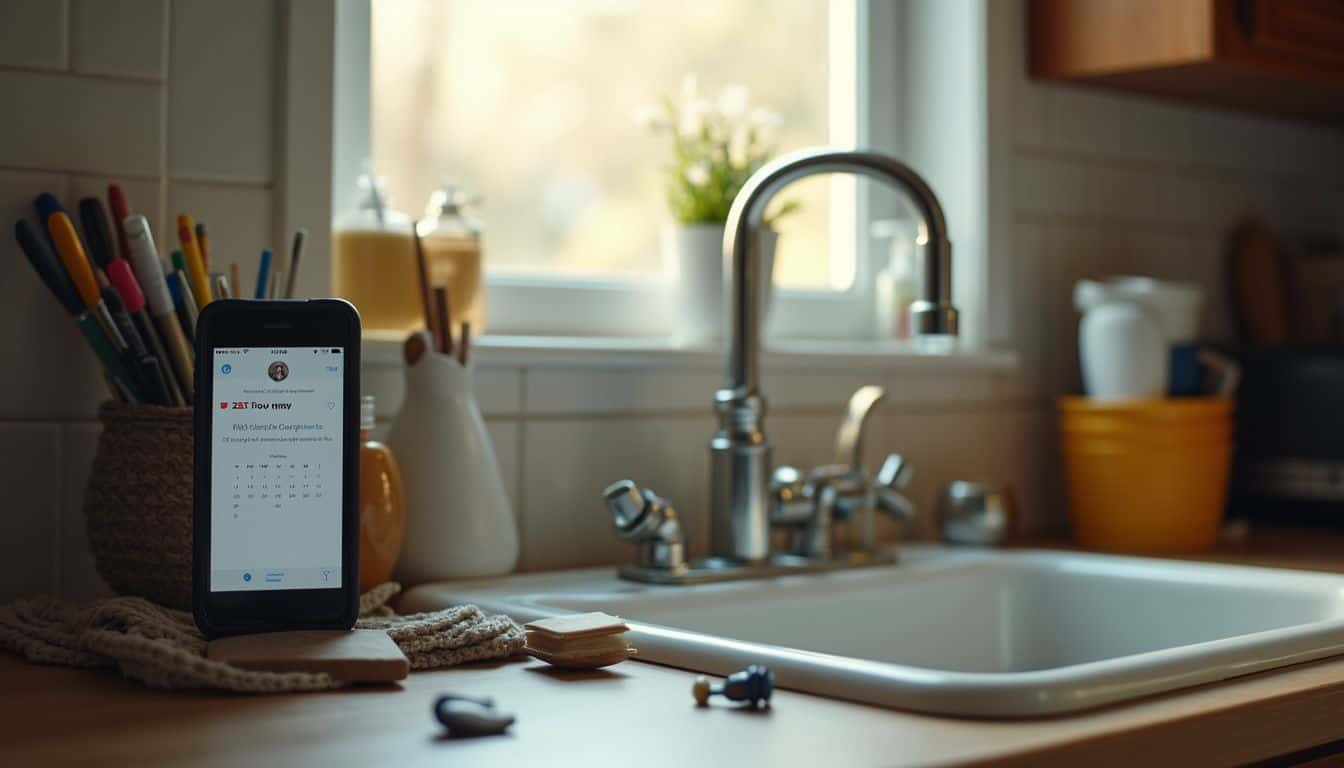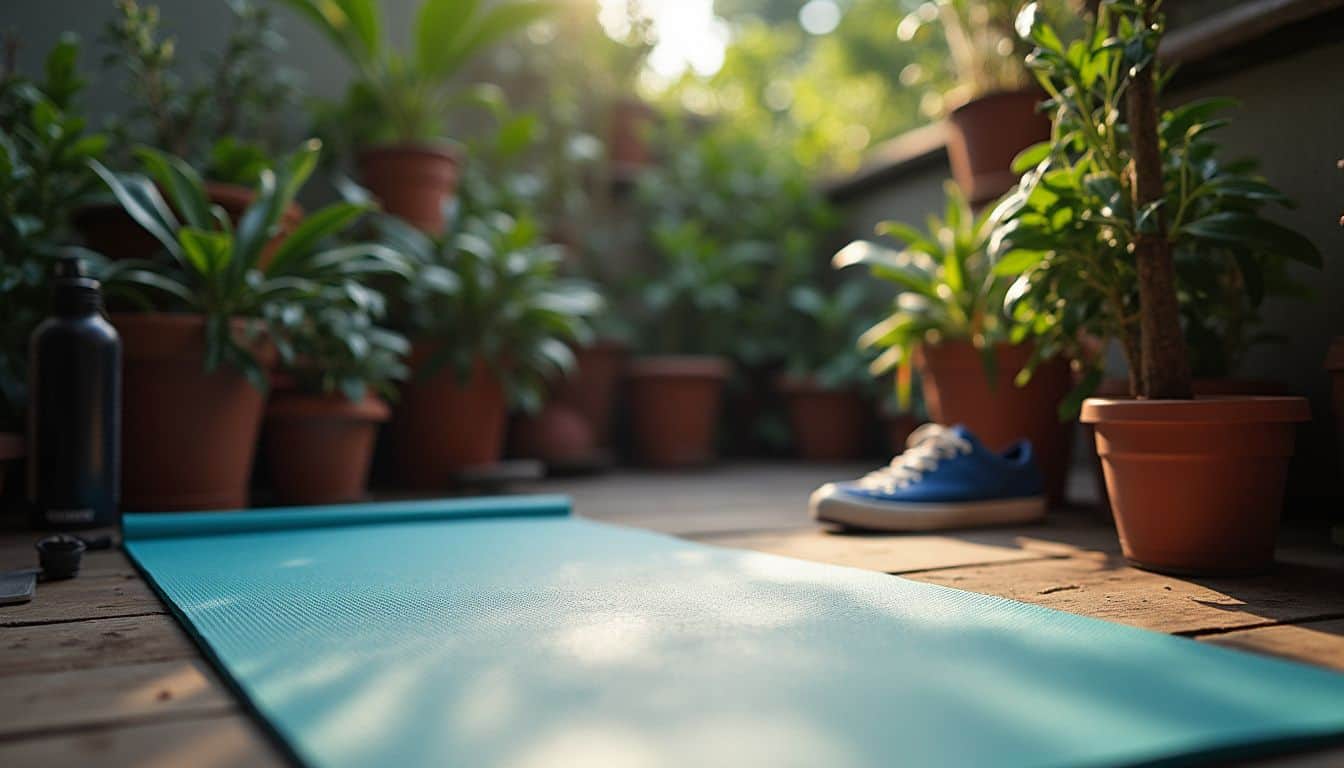Does it ever feel like the moment you finally sit down, a wave of guilt washes over you?
You crave just a few minutes of quiet, but your mind starts racing with a dozen other things you “should” be doing. That feeling of mom guilt is so common, but almost no one talks about how to actually handle it.
Here’s what I’ve learned: taking that time for yourself isn’t just a nice idea, it’s essential for your mental health. It actually makes you a better, more patient parent.
I’m going to walk you through exactly how to enjoy “me time” without the parenting guilt. We’ll look at simple, practical ways to find those moments of peace, and I promise, it’s easier than you think. Your happiness is worth it!
Key Takeaways
Alone time is a necessity, not a luxury. Regular breaks, even a five-minute solo walk, are shown to improve patience and mental health, making you more present with your family. A 2023 Ohio State University study found 66% of working parents experience burnout, highlighting the need for rest.
Parenting guilt is normal but manageable. Social pressure often makes self-care feel selfish. Reframing it as a way to recharge helps you model healthy habits for your children, a concept championed by researchers like Brené Brown.
Start small with “micro-moments.” You don’t need a whole spa day. Scheduling just 10-15 minutes in your calendar for a cup of tea or a quick meditation session with an app like Calm or Headspace can make a huge difference.
Engage in creative hobbies to lower stress. Activities like journaling, doodling, or practicing yoga are proven to reduce stress and improve your problem-solving abilities.
The future is more flexible. As of 2025, growing trends in flexible work and new tech tools are making it easier for parents to find personal time. Swapping childcare with friends or joining online classes are great ways to support guilt-free self-care.
Table of Contents
Why is Me Time Important for Parents?

After talking about the big parenting challenges, it’s helpful to see why “me time” is so incredibly valuable. If you’re constantly feeling stressed, isolated, or lonely, you’re not alone.
When you never get a moment to step back, your patience wears thin, which makes family life tougher for everyone. Think of it like a mental reset button. Regular alone time can lower stress hormones, giving your mind a chance to breathe. Just ten minutes of journaling can stop small annoyances from escalating.
Stepping away from your parenting duties, even for a short while, sharpens your focus and empathy. I know so many women who swear by a quick solo walk or a creative outlet like sketching. It’s not about escaping your family; it’s about recharging so you can return to them as a better version of yourself.
“Taking care of yourself is part of taking care of your kids,” my own mother always said during her busiest years.
In her book “Real Self-Care,” psychiatrist Dr. Pooja Lakshmin explains that true self-care isn’t about spa days, but about setting boundaries and protecting your energy. It’s one of the key habits of highly effective people.
New research continues to show that these small breaks boost life satisfaction and help parents be more present at home. That’s a gift every child deserves, whether they’re off to soccer practice or even a magic summer camp for kids.
Understanding Parenting Guilt

Guilt can show up faster than a pile of laundry on a rainy day. But here’s the thing, taking care of yourself never makes you selfish.
Why is feeling guilty about me time normal?

Society sends a constant message that parents, especially moms, should always put their kids first. This idea of selfless motherhood is everywhere, from social media to playground conversations. It’s no wonder that mum guilt feels almost automatic when you try to take time for yourself.
I’ve felt that sting myself after simply enjoying a coffee alone at the park. But these feelings don’t mean you’re doing anything wrong. They just show how deeply you care about your family.
The guilt comes from the assumption that good parenting means constant sacrifice. Research from the Pew Research Center has shown that mothers often feel a unique societal pressure to be constantly involved. This pressure affects both introverts and extroverts, leading to burnout and stress.
Acknowledging that this guilt is a shared experience is the first step. It helps us see it for what it is, a response to external pressure, not a reflection of our love for our children.
How to tell self-care apart from selfishness

Drawing the line between self-care and selfishness feels fuzzy when parenting guilt is involved. But the distinction is simple.
Selfishness is acting without regard for others’ needs. Self-care is about restoring your own resources so you can meet your needs *and* the needs of others.
Taking fifteen minutes to drink your coffee while it’s still hot isn’t selfish. It’s a strategic move that gives you the patience to handle the next toddler meltdown. Good time management is about carving out these moments without disrupting family harmony.
A 2022 report from the American Psychological Association found that parents who regularly practice self-care report significantly lower stress levels. As author Brené Brown often says:
Authenticity is not about being perfect; it’s about being real.
Showing your kids a “real” version of you, one who values her own well-being, is one of the best lessons you can teach.
Benefits of Taking Guilt-Free Me Time

When you take time for yourself, it’s not just you who benefits. You come back to your family with a clearer mind, a brighter mood, and a much fuller energy tank.
How does me time improve mental well-being?

Taking “me time” is a powerful tool for lowering stress. Voluntary solitude gives you a sense of freedom and control, which researchers have directly linked to stronger mental health. Setting aside even small pockets of time for yourself lets you catch your breath and feel like a whole person, not just a parent.
Many parenting tips focus on the child, but it’s crucial to embrace a little positive selfishness by making space for your own needs. A study in the *Journal of Health Psychology* found that engaging in a hobby for as little as 30 minutes can significantly reduce levels of the stress hormone cortisol.
This shift in focus stops guilt before it starts and helps build your emotional resilience. Over time, making “me time” a regular habit creates a calmer, happier home for everyone.
How can me time enhance parenting skills?

A rested parent is a better parent. When you take just 15 minutes alone, you restore your patience. This makes it so much easier to calmly handle the daily chaos of homework, sibling squabbles, and toddler tantrums.
A report from Harvard’s Center on the Developing Child emphasizes that caregiver well-being is crucial for children’s healthy development. When you’re less stressed, you can solve problems more creatively and listen more attentively.
Kids are always watching what we do. When you value your own self-care, you’re modeling a vital life skill for your children. They learn that taking a break isn’t selfish, it’s smart. You come back to them with more energy, fresh ideas, and a warmer presence in your daily interactions.
How Can Parents Make Time for Themselves?

Juggling everything can make finding time for yourself feel impossible. But with a few simple strategies, you can learn to carve out those quiet moments you desperately need.
How to set boundaries and communicate them effectively

Treat your “me time” like a non-negotiable appointment. Put it on the calendar. Let your partner and kids know, “This is Mom’s quiet time.”
You don’t need a long explanation. According to Nedra Glover Tawwab, author of “Set Boundaries, Find Peace,” simple and direct statements work best. Try one of these:
- “I need 20 minutes to myself so I can recharge.”
- “I’ll be able to help you with that after I take my walk.”
- “I’m not available right now, but I will be at 4 PM.”
Consistency is key. When your family sees that this is a regular part of your routine, they will learn to respect it. You’re not shutting them out, you’re just showing them what you need to be your best self.
Setting boundaries isn’t about shutting others out. It’s inviting them to respect what keeps you at your best.
Clear boundaries create space for those micro-breaks that can save your sanity. Now, let’s look at how to find those little moments in a busy day.
What are simple ways to add micro-moments of solitude?

You don’t need a whole afternoon to recharge. Small breaks can be just as effective at easing stress.
- Sip tea in silence for five minutes. Really focus on the warmth and the flavor.
- Take a brisk solo walk around the block while your partner handles bedtime.
- Use a meditation app like Headspace or Calm. They have guided sessions as short as three minutes.
- Lock the bathroom door and put on a quick face mask from a brand like L’Oréal or Neutrogena.
- Listen to one of your favorite upbeat songs with headphones on, like something from Lizzo, while you unload the dishwasher.
- Wake up 15 minutes early to do a gentle yoga routine with a free YouTube video from Adriene Mishler.
- Keep a gratitude journal by your bed and write down one good thing before you go to sleep.
- Stand on your porch for a few minutes at sunset and just breathe, without your phone.
What Are Practical Ideas for Enjoying Me Time?

Finding what truly relaxes you is key. It could be a simple stretching routine, picking up an old hobby, or just sitting in your favorite chair with a hot cup of coffee and no interruptions.
How can yoga or meditation help during me time?

Yoga is fantastic for releasing the physical tension we hold in our bodies, while meditation helps quiet a racing mind. Even five minutes of deep breathing in your car before you walk into the house can work wonders.
Both practices are proven to lower stress and improve emotional control, which is a superpower for any parent. A 2024 study in the journal *Mindfulness* found that moms who practiced mindfulness for just 10 minutes a day reported feeling calmer and more connected to their children.
This isn’t about adding another thing to your to-do list. It’s about using these simple tools to cut through the guilt and find a sense of peace in the middle of the chaos.
What hobbies or creative activities are good for me time?

Journaling is a wonderful way to process your thoughts and give them a safe place to land. You could also try doodling or using an adult coloring book, as these activities are known to calm the mind.
Reading just one chapter of a novel can feel like a mini-escape. Even just sitting in the garden with a cup of tea can feel like a small vacation.
If you’re looking for ideas, there are tons of online resources. You can find inspiration by looking at what other parents are doing, like these stay-at-home dad hobbies, as many of them are perfect for moms too!
How to relax at home with no agenda
Sometimes the best kind of “me time” is the kind where you do absolutely nothing. Grab a book, put on some soft music, or just sit in your favorite chair and let your mind wander.
Give yourself permission to not be productive. I often put my phone on silent and just stare out the window with my coffee for ten minutes. It’s surprisingly refreshing.
If guilt starts to creep in, gently remind yourself that recharging is productive. Research consistently shows that rest improves focus and energy. If you’re struggling with “stay-at-home mom boredom“, this helpful stay-at-home mom boredom guide has some great ideas.
How Will Me Time for Parents Change in 2025?

The good news is that finding time for yourself is getting easier. As we move through 2025, the rise of flexible work options is a huge win for parents. Many companies now understand that supporting their employees’ work-life balance is essential.
Technology is also lending a hand. Voice assistants can manage schedules, meal kits can cut down on prep time, and online communities are making it easier to connect with other parents. Setting up a childcare swap with a friend is a great way for both of you to get a much-needed break.
The conversation around self-care is changing too. More and more, we see stories of parents taking guilt-free solitude, which helps shift the outdated mindset that parents should always be “on.”
Even an extra five minutes of peace can feel like a victory, and these small changes are adding up to make a real difference.
People Also Ask
How can I enjoy “me time” without feeling like a bad parent?
Think of it as a requirement for the job, not a vacation from it. A 2023 study in the Journal of Family Psychology linked maternal self-care to lower parenting stress, which means you return with more patience. You’re also teaching your kids that it’s healthy to take care of yourself.
What are some simple ways to carve out personal time when parenting feels nonstop?
Start with “micro-breaks” like listening to one favorite song without interruption or trying a five-minute guided meditation on an app like Calm. You could also organize a weekly “kid swap” with a friend, giving you both a scheduled block of free time. Even tiny, planned moments add up.
Why do parents feel guilty about wanting alone time?
That feeling often stems from what sociologist Sharon Hays called “intensive mothering,” the cultural idea that a good parent’s needs always come last. This puts immense pressure on moms to be constantly available. Needing space to recharge is a human need, not a personal failure.
Can taking breaks from my children actually help our relationship?
Yes, because it directly helps prevent parental burnout, which a 2022 Ohio State University study identified as a major risk factor for strained family interactions.
